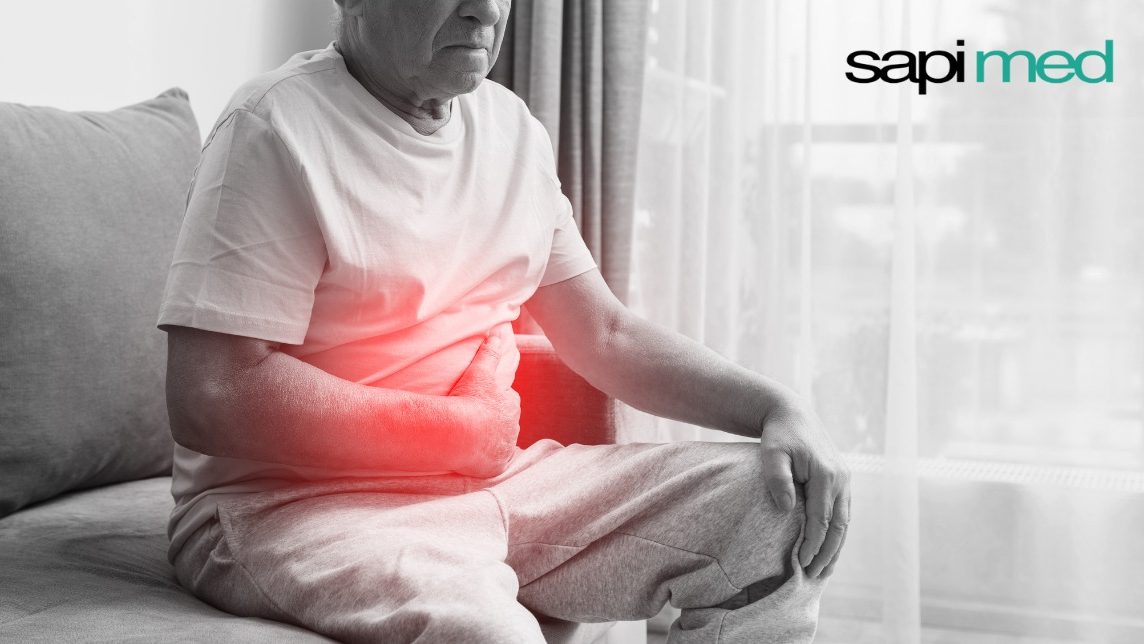Let’s continue our appointment dedicated to Inflammatory Bowel Diseases (known by the acronym IBD). Last month, we discussed Crohn’s disease, a highly debilitating condition characterized by the onset of chronic or recurrent intestinal ulcers as an immune response to certain antigens. In this month’s meeting, we will address another IBD condition: Ulcerative Colitis, also known as “Ulcerative Rectocolitis”.
What is Ulcerative Colitis and how does it manifest?
Ulcerative Colitis is a chronic inflammatory bowel disease that affects the mucosa of the large intestine, specifically the rectum, and can extend partially or entirely into the colon. The inflammation causes ulcerative lesions (fissures or erosions) that are responsible for intestinal symptoms. The symptoms vary based on the severity and location of the inflammatory process: if the inflammation is limited to the rectum, the patient may experience mild bleeding, painful spasms of the anus, and a sense of urgent need to defecate. As the inflammation spreads to other areas, the symptoms tend to become more severe. Typical manifestations include bloody and mucus-filled diarrhea, abdominal pain, fatigue, weight loss, night sweats, and dehydration. In some cases, the symptoms can be so severe that hospitalization is required to administer therapies (usually corticosteroids, immunosuppressants/biologics, hydro-electrolytic and nutritional support, and possibly antibiotics) intravenously and closely monitor the patient. All symptoms have a recurring pattern, as the patient alternates between periods of remission and moments of exacerbation.
Causes of Ulcerative Colitis
The causes of inflammation in Ulcerative Colitis are still not well understood. There are several hypotheses, with the most reliable ones considering the interplay between immune theory and heredity. Some factors that contribute to its onset include:
- genetic predisposition (family predisposition to developing the disease);
- altered epithelial barrier of the colon;
- immunological factors (abnormal immune reaction by the intestine to certain antigens);
- environmental factors (cigarette smoke and other still poorly known factors).
Diagnosis: imaging and laboratory tests
Similar to Crohn’s disease, the diagnosis of Ulcerative Colitis is never straightforward or rapid. To diagnose Ulcerative Colitis, several imaging and laboratory tests are required, which must be interpreted in the context of a broader clinical picture to exclude other conditions with similar characteristics. The main tests requested by specialists usually include:
- Blood testse (particularly to detect possible anemia and assess the severity of inflammation through white blood cell count);
- Stool examination (to exclude infectious diseases or the coexistence of infections alongside the ongoing disease);
- Radiological investigations such as CT scans, Abdominal MRI, and Barium Enema;
- Colonoscopy with biopsy (the reference procedure to assess the state of the intestinal mucosa and the extent of the disease. Additionally, the ability to take small tissue samples allows for detailed laboratory analysis).
The relationship between colitis and colon cancer
Having an inflammatory bowel disease increases the risk of developing colorectal neoplasia since persistent inflammation over the years causes progressive structural damage to the colon. The risk of colon cancer is highest when it involves the entire large intestine and increases with the duration of Ulcerative Colitis. In some patients with Ulcerative Colitis, precancerous changes may occur in the cells forming the colon wall (called dysplasia). The presence of such cellular mutations increases the likelihood of developing cancer. Therefore, it is crucial for patients with Ulcerative Colitis to remain under surveillance to take preventive measures and initiate the most appropriate treatments.
Treatments and quality of life in Ulcerative Colitis
A diagnosis of Ulcerative Colitis means living with a chronic debilitating inflammatory disease. Available treatments aim to control inflammation, reduce symptoms, and replace lost nutrients and fluids. However, there are no therapies for complete cure of this disease. The medications used, primarily pain relievers and anti-inflammatories, aim to prevent complications during the acute phase and help the patient manage symptoms in the chronic phase. If the disease does not respond to the initial treatments, immune-suppressing drugs that regulate the immune system and biologic drugs may be used.
The importance of dietary management
To live well with Ulcerative Colitis, it is essential to maintain a healthy and balanced diet and stay hydrated by consuming an adequate amount of fluids (at least 1.5 – 2 liters per day). Specifically:
- eliminate spicy and hot foods;
- avoid carbonated beverages, tea, wine, and coffee;
- do not consume chocolate;
- limit the consumption of dairy products;
- take probiotics;
- prefer refined foods (avoid introducing too much fiber).
The contents of this page are for informational purposes only and should in no way replace the advice, diagnosis, or treatment prescribed by your physician. Responses to the same treatment may vary from patient to patient. Always consult your doctor regarding any information related to diagnoses and treatments, and meticulously follow their instructions.



